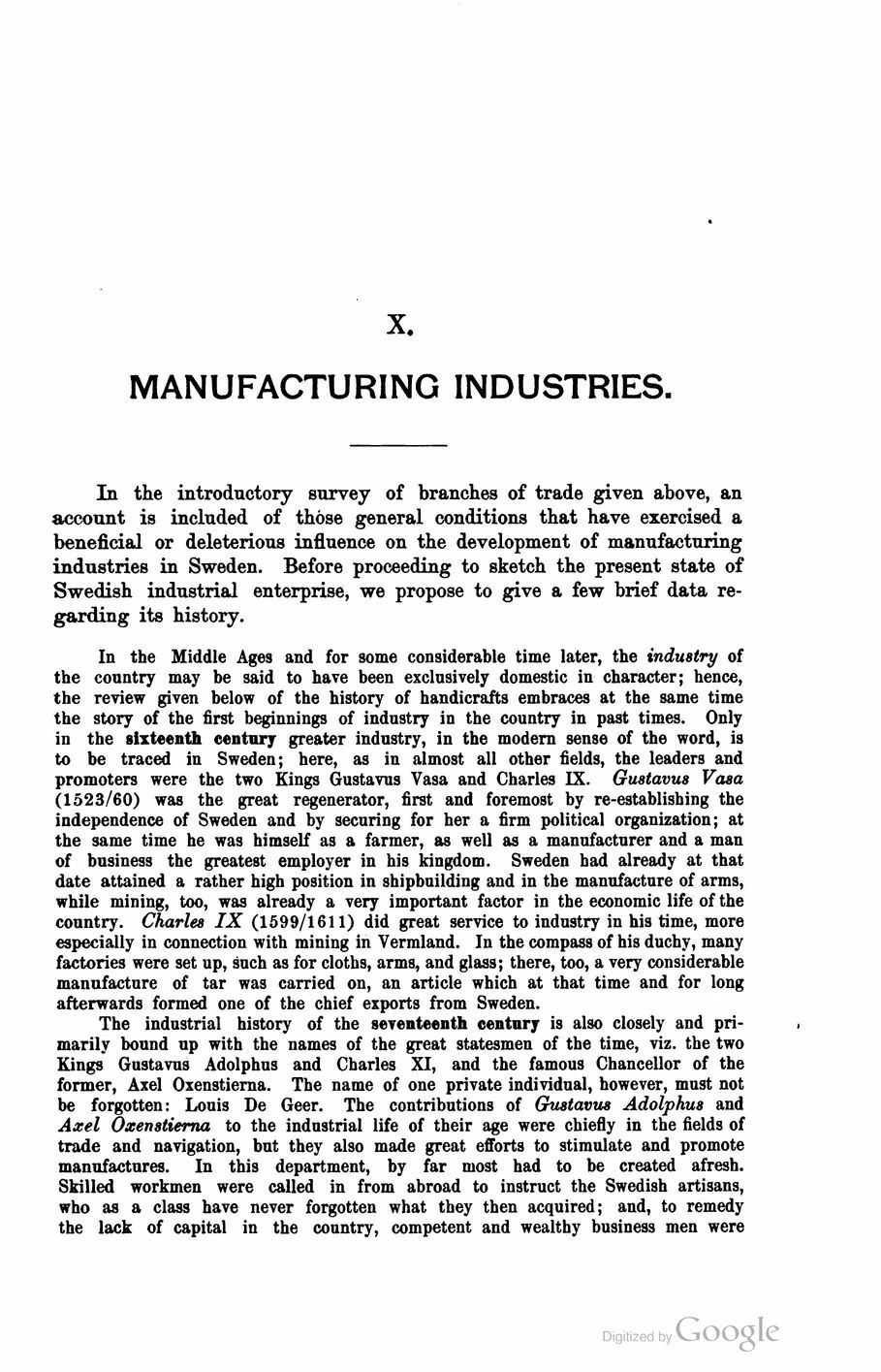
Full resolution (JPEG) - On this page / på denna sida - Second part - X. Manufacturing Industries. By Å. G. Ekstrand, Ph. D., Chief Engineer, Control Office of the Department of Finance

<< prev. page << föreg. sida << >> nästa sida >> next page >>
Below is the raw OCR text
from the above scanned image.
Do you see an error? Proofread the page now!
Här nedan syns maskintolkade texten från faksimilbilden ovan.
Ser du något fel? Korrekturläs sidan nu!
This page has never been proofread. / Denna sida har aldrig korrekturlästs.
X
MANUFACTURING INDUSTRIES.
In the introductory survey of branches of trade given above, an
account is included of those general conditions that have exercised a
beneficial or deleterious influence on the development of manufacturing
industries in Sweden. Before proceeding to sketch the present state of
Swedish industrial enterprise, we propose to give a few brief data
regarding its history.
In the Middle Ages and for some considerable time later, the industry of
the country may be said to have been exclusively domestic in character; hence,
the review given below of the history of handicrafts embraces at the same time
the story of the first beginnings of industry in the country in past times. Only
in the sixteenth century greater industry, in the modern sense of the word, is
to be traced in Sweden; here, as in almost all other fields, the leaders and
promoters were the two Kings Gustavus Vasa and Charles IX. Gustavus Vasa
(1523/60) was the great regenerator, first and foremost by re-establishing the
independence of Sweden and by securing for her a firm political organization; at
the same time he was himself as a farmer, as well as a manufacturer and a man
of business the greatest employer in his kingdom. Sweden had already at that
date attained a rather high position in shipbuilding and in the manufacture of arms,
while mining, too, was already a very important factor in the economic life of the
country. Charles IX (1599/1611) did great service to industry in his time, more
especially in connection with mining in Vermland. In the compass of his duchy, many
factories were set up, such as for cloths, arms, and glass; there, too, a very considerable
manufacture of tar was carried on, an article which at that time and for long
afterwards formed one of the chief exports from Sweden.
The industrial history of the seventeenth century is also closely and
primarily bound up with the names of the great statesmen of the time, viz. the two
Kings Gustavus Adolphus and Charles XI, and the famous Chancellor of the
former, Axel Oxenstierna. The name of one private individual, however, must not
be forgotten: Louis De Geer. The contributions of Gustavus Adolphus and
Axel Oxenstierna to the industrial life of their age were chiefly in the fields of
trade and navigation, but they also made great efforts to stimulate and promote
manufactures. In this department, by far most had to be created afresh.
Skilled workmen were called in from abroad to instruct the Swedish artisans,
who as a class have never forgotten what they then acquired; and, to remedy
the lack of capital in the country, competent and wealthy business men were
<< prev. page << föreg. sida << >> nästa sida >> next page >>